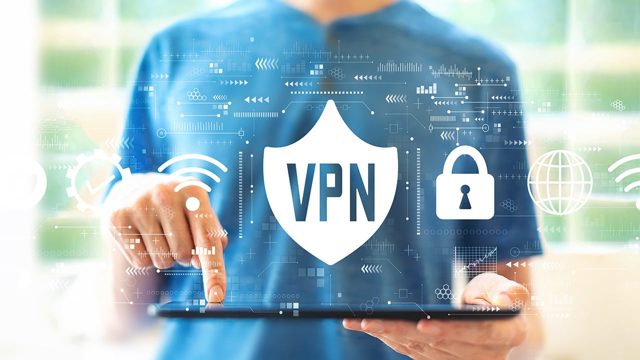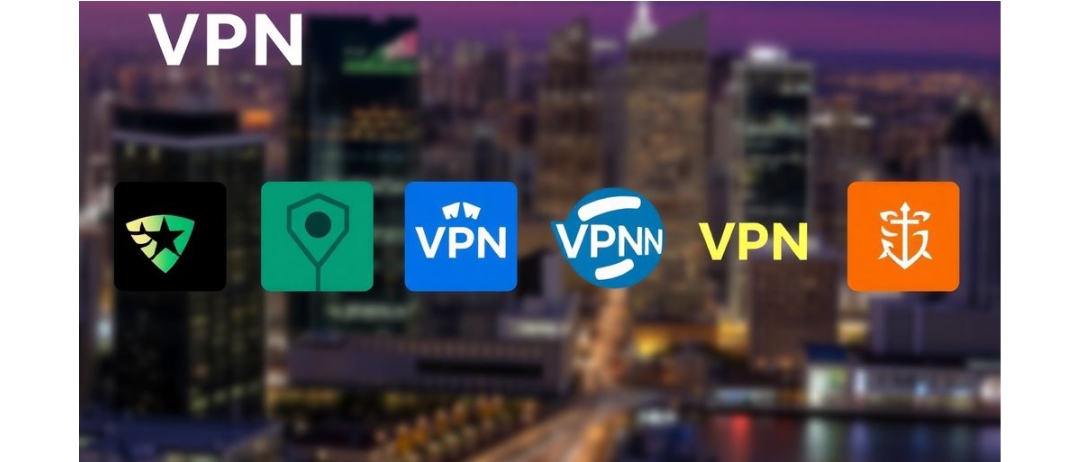As we step into 2025, the demand for reliable online privacy continues to grow. With so many VPN options available, it can be tough to figure out which one is the best fit for you. This article breaks down the key features, top contenders, and what to look for when choosing a VPN that suits your needs. Let’s explore what makes a VPN truly stand out in today’s digital landscape.
Key Features of The Best VPN
Privacy Protection
When picking a VPN, privacy is a big deal. No-log policies are a must. You want a VPN that doesn’t keep track of what you do online. Look for VPNs with strong encryption, like AES-256, and features like DNS leak protection. A kill switch is also important; it cuts off your internet if the VPN connection drops, preventing your data from being exposed. It’s about keeping your data safe from prying eyes.
Speed and Performance
Nobody wants a slow VPN. Speed is key. A good VPN should have minimal impact on your internet speed. Look for VPNs with a wide range of servers, so you can find one close to you. The closer the server, the faster the connection. Also, consider the VPN’s protocols. Some protocols, like WireGuard, are known for their speed and efficiency. You want a VPN that can handle streaming, gaming, and downloading without lag.
User-Friendly Interface
VPNs can be complicated, but the interface shouldn’t be. A good VPN should be easy to use, even if you’re not a tech expert. Look for VPNs with simple, intuitive interfaces. Choosing a VPN with clear instructions and helpful support is important. You should be able to connect to a server with just a few clicks. The best VPNs make it easy to manage your settings and customize your experience.
A user-friendly VPN interface is important because it makes the technology accessible to everyone, regardless of their technical skills. It simplifies the process of connecting to a server, managing settings, and customizing the VPN experience, ensuring that users can easily protect their online privacy and security without frustration.
Top Contenders for Best VPN
Okay, so who are the big players in the VPN game as we head into 2025? It’s not just about picking a name out of a hat. We’re talking about services that consistently deliver on speed, security, and overall user experience. Let’s break down some of the top contenders.
NordVPN
NordVPN is often the first name that comes to mind, and for good reason. It’s a well-rounded service that balances security with usability. They’ve got a massive server network, which translates to good speeds for most users. Plus, they’re constantly updating their features and security protocols. I’ve found their interface pretty easy to navigate, even for someone who isn’t super tech-savvy. They’ve also been working hard to improve their transparency, which is a big plus in the privacy world. It’s worth checking out their VPN costs to see if it fits your budget.
ExpressVPN
ExpressVPN is another heavy hitter. They’re known for their consistent speeds and reliable performance. While they might be a bit pricier than some other options, many users find the performance justifies the cost. They also have a solid reputation for privacy, which is obviously a key consideration when choosing a VPN. I’ve always found their customer support to be responsive and helpful, which is a nice bonus. They are often in a tight race for the best VPN service.
Surfshark
Surfshark has made a big splash in recent years, offering a lot of features at a competitive price. One of the things that sets them apart is their unlimited device connections, which is great for families or anyone with multiple devices. They’ve also been focusing on expanding their server network and improving their security features. I’ve seen them pop up on cybersecurity experts lists, so they are definitely worth considering.
Choosing the right VPN really depends on your individual needs and priorities. There’s no one-size-fits-all solution, so it’s important to do your research and find a service that fits your specific requirements.
Here’s a quick comparison table:
| Feature | NordVPN | ExpressVPN | Surfshark |
| Price | Medium | High | Low |
| Speed | Good | Excellent | Good |
| Server Locations | Many | Many | Growing |
| Device Limit | 6 | 5 | Unlimited |
Comparative Analysis of VPN Services
Pricing Models
Okay, let’s talk money. VPN pricing is all over the place. Some go for the super-cheap, long-term commitment strategy, while others are premium-priced month-to-month. You really gotta think about how long you’re planning to use a VPN. A two-year plan might seem like a steal, but what if you hate the service after a month? Most offer some kind of money-back thing, but it’s still a hassle. Keep an eye out for those limited-time deals, they can seriously cut costs.
- Monthly Subscriptions: Usually the most expensive option, but good for short-term needs.
- Annual Subscriptions: A decent middle ground, offering some savings.
- Multi-Year Subscriptions: The cheapest per month, but a long commitment.
Server Locations
Server location matters more than you might think. Want to watch shows from another country? You need servers there. Trying to get the fastest speeds? Pick a server close to you. The more server locations a VPN has, the better your chances of finding a good connection. It’s not just about quantity, though. The spread of those servers is important too. A VPN with tons of servers all in one country isn’t as useful as one with fewer servers spread across the globe. For example, if you want to use a testing VPN to check your speed, you’ll want to make sure it has servers in the location you’re testing from.
Customer Support
Customer support can be a lifesaver. Imagine your VPN suddenly stops working right before a big game. You want help, and you want it now. Some VPNs have 24/7 live chat, which is awesome. Others rely on email or FAQs, which can be slow. I always check what kind of support is available before signing up. A good knowledge base can also be super helpful for troubleshooting common issues.
I had this one VPN that kept disconnecting, and their support was useless. It took them days to respond to my emails, and their solutions never worked. I ended up switching to a different VPN with much better support. Lesson learned: don’t underestimate the importance of good customer service.
Security Protocols in VPNs
It’s easy to get lost in the technical details when you’re trying to pick a VPN. But understanding the security protocols is super important. It’s like knowing what kind of lock you have on your front door – you want something strong! Let’s break down some of the key things to look for.
Encryption Standards
Encryption is what scrambles your data so no one can read it while it’s traveling across the internet. AES-256 is pretty much the gold standard these days. It’s used by governments and security experts, so it’s a solid choice. Some VPNs might use other encryption methods, but AES-256 is a good benchmark. Also, keep an eye out for VPNs that are forward-thinking and are upgrading their protocols to protect against future threats.
No-Log Policies
This is a big one. A no-log policy means the VPN provider promises not to keep track of what you do online. That includes your browsing history, what files you download, and your IP address. The best way to know if a VPN is really keeping its promise is to see if they’ve had their policy audited by a third party. It’s like getting a second opinion to make sure they’re on the up-and-up.
It’s worth noting that some VPNs might keep some minimal connection logs, like the date and time you connected to their service, but they shouldn’t be keeping track of what you’re actually doing online. Read the fine print!
Kill Switch Features
A kill switch is a safety net. If your VPN connection drops for any reason, the kill switch automatically cuts off your internet connection. This prevents your data from being exposed if the VPN fails. It’s a must-have feature, especially if you’re using a VPN for sensitive activities. Think of it as an emergency brake for your VPN connection.
Here’s a quick rundown of why these features matter:
- Encryption: Keeps your data private.
- No-Logs: Prevents the VPN from tracking you.
- Kill Switch: Protects you if the VPN fails.
Choosing a VPN with strong security protocols is a smart move in 2025. It’s all about keeping your data safe and your online activity private.
User Experience and Reviews
Real User Feedback
When you’re picking a VPN, it’s easy to get lost in all the tech talk. But what do actual users think? I’ve been digging through forums and review sites to get a sense of what people are really saying. Some users rave about how easy a VPN is to use, while others complain about connection issues or confusing settings. It really varies. One thing I’ve noticed is that customer support can make or break the experience. If you run into a problem, you want to know someone’s there to help, right? It’s worth checking out what people say about the support offered. For example, NordVPN is often praised for its user-friendly interface and reliable performance.
Expert Reviews
Expert reviews can give you a more objective look at a VPN’s strengths and weaknesses. These reviews often put VPNs through a series of tests to measure things like speed, security, and reliability. They also look at things like server locations, pricing, and customer support. Some even compare free VPN options to paid ones, which can help if you’re on a budget. It’s good to read a few different reviews to get a well-rounded picture. I’ve seen some experts give high marks for usability, like a score of 8/10, which is pretty good. But remember, even the best VPNs have their downsides. It’s all about finding one that fits your needs.
Performance Benchmarks
Okay, let’s talk numbers. Performance benchmarks are all about measuring how fast a VPN is. This includes things like download speed, upload speed, and latency. These numbers can vary depending on your location, your internet connection, and the VPN server you’re using. Some VPNs are consistently faster than others, but it’s not always a huge difference.
It’s important to remember that speed tests are just a snapshot in time. Your actual experience may vary. Also, a VPN might be fast for some things (like browsing) but slower for others (like streaming). So, take these benchmarks with a grain of salt.
Here’s a quick look at some typical performance metrics:
- Download Speed: 50-200 Mbps
- Upload Speed: 20-80 Mbps
- Latency: 10-50 ms
VPNs for Specific Needs
It’s not one-size-fits-all when it comes to VPNs. What works great for streaming might be overkill (or just plain wrong) for gaming, and what’s perfect for privacy might be too slow for everyday browsing. Let’s break down some common needs and which VPNs might be the best fit.
Best VPN for Streaming
Streaming is a big reason people get VPNs. You want to watch shows and movies that aren’t available in your region, right? Speed is key here. You don’t want buffering ruining your binge-watching session. A large number of servers is also important, so you can connect to a server in the country where the content is available. Make sure the VPN works with the streaming services you use, because some are better at blocking VPNs than others.
Best VPN for Gaming
Gaming with a VPN is a different beast. You’re looking for low latency (ping) above all else. A VPN with servers close to the game server is ideal. You also want a stable connection, because disconnects in the middle of a match are the worst. Some gamers use VPNs to access games early or to play with friends in other regions, but be careful, as this could violate the game’s terms of service.
Best VPN for Privacy
If privacy is your main concern, you need a VPN with strong encryption, a strict no-logs policy, and a kill switch. A no-logs policy means the VPN provider doesn’t keep track of your online activity. Look for VPNs that have been independently audited to verify their privacy claims. Jurisdiction matters too; a VPN based in a country with strong privacy laws is a plus.
For those handling sensitive information, like financial or medical records, security is paramount. Prioritize VPNs with robust encryption, independently verified no-logs policies, and jurisdiction in privacy-friendly countries.
Future Trends in VPN Technology
AI and Machine Learning Integration
VPNs are starting to use AI and machine learning more and more. This isn’t just some buzzword thing; it’s actually changing how VPNs work. For example, AI can help VPNs automatically pick the best server for you based on your location and network conditions. It can also spot and block malicious traffic in real-time, making your connection safer. I think we’ll see even smarter VPNs that learn from your usage patterns to give you a better, more secure experience.
Increased Focus on Privacy
Privacy is already a big deal, but it’s going to get even bigger. People are waking up to how much their data is worth, and they want more control over it. VPNs will need to step up their game to meet these demands. Expect to see more VPNs with advanced privacy features, like decentralized networks and better encryption.
- Stronger encryption protocols
- More transparent data policies
- Features that hide your VPN use
It’s not enough to just say you care about privacy. VPNs need to prove it with their actions and technology.
Emerging Markets
The VPN market is growing fast in places where internet access is restricted or heavily monitored. As more people in these regions look for ways to bypass censorship and protect their online freedom, VPNs will become even more important. This means VPN companies will need to adapt their services to meet the specific needs of these users, like offering support for local languages and payment methods. It’s a big opportunity, but also a big responsibility to help people access information freely.
Final Thoughts on Choosing the Best VPN
So, after looking at all the options out there, it’s clear that picking the right VPN really depends on what you need. Some folks care more about speed, while others might prioritize privacy or ease of use. NordVPN seems to be the go-to for many, but ExpressVPN and Surfshark also have their strong points. Just remember, the best VPN for you is the one that fits your specific needs. Don’t rush it—take your time, weigh your choices, and you’ll find the right fit. Stay safe online!
Frequently Asked Questions
What is a VPN and why do I need one?
A VPN, or Virtual Private Network, helps protect your online privacy by hiding your IP address and encrypting your internet connection. This way, your online activities are safer from hackers and snoopers.
How do I choose the best VPN for my needs?
To find the best VPN, think about what you need most. Do you want fast speeds for streaming? Or are you looking for strong privacy features? Compare different VPNs based on these needs.
Are free VPNs safe to use?
Free VPNs can be risky. They might sell your data or have weak security. It’s usually better to choose a paid VPN that offers strong privacy and security.
Can a VPN help me access blocked websites?
Yes! A VPN can help you access websites that are blocked in your country by changing your virtual location to a place where those websites are available.
Will using a VPN slow down my internet speed?
Using a VPN can sometimes slow down your internet speed because your data has to go through extra servers. However, many top VPNs work hard to keep speeds fast.
Is it legal to use a VPN?
In most places, using a VPN is legal. However, some countries have strict rules about VPN use, so it’s important to check the laws where you live.































